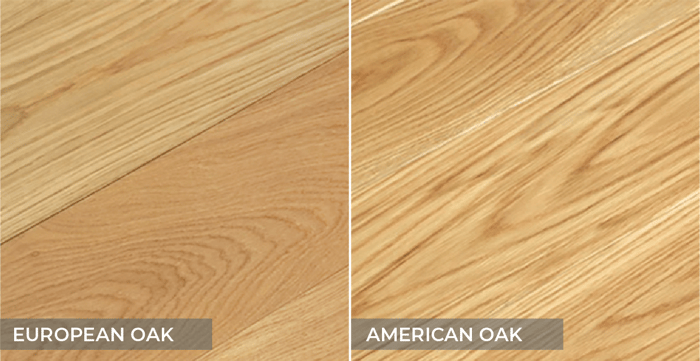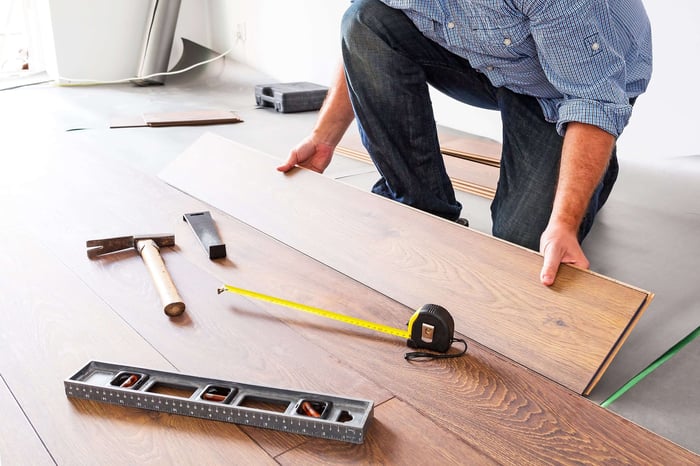Despite its popularity, it can be challenging to find quality wood flooring at a fair price. At Harper Floors, we make it easy to do both.
We have a quarter of a century of experience in the manufacturing and hardwood flooring industries. We source these products, so you can order fine, unique wood products straight from us and cut out overly expensive brokers and avoid unnecessary retail markups. We focus on customer service, and to ensure that you like what you select, we send you free samples of each product.
An example of one of our popular products is our Brazilian Walnut solid wood flooring by Harper Floors.
To get more out of your next wood floor, we can help you plan out your steps carefully. Selecting material that is suitable for your unique project is crucial. If you don't use the appropriate type of flooring for each area, it can result in various types of damage or structural failure.
One critical metric you can consider is the hardness of the wood. Hardness gives you important insight into the durability and capability of different wood species. The industry metric and tool used to gain such insights is based on the Janka Hardness Scale.
The Unique Toughness of Wood
All over the world, people favor wood flooring for many reasons, including its toughness and durability. Its unique characteristics, including its maleability or hardness, allow manufacturers, businesses, and individuals like you to use it in various ways.
The hardness of wood varies by tree species. Knowing the hardness and other characteristics of wood are essential in construction. The attributes of a type of wood dictate where and how you can use it.
For example, a outdoor wood decking must be able to withstand heavy outdoor traffic, changes in temperature, and possibly higher moisture levels than indoor areas. Similarly, a wood flooring in a kitchen needs to be able to handle spills and hot liquids while maintaining its natural beauty and aesthetic. Hardness ratings organize species by toughness and durability. They help you understand if your chosen wood species will stand up to the uses you intend for it.
The Janka Hardness Scale
The Janka Hardness Scale offers an engineering-based method of understand ing foundational wood characteristics. To determine the hardness of tree species and their relativity on the scale, engineers use a stress test process.
During Janka Hardness Testing, technicians push a 0.444-inch steel ball into a sample of wood until it is halfway submerged. The wood sample mounts either end-on or across the grain. Technicians can then determine how much force it takes to create the resulting impression. Softer tree species require less energy to create an impression. Harder tree species require more force to create the same impression.
The Janka Hardness Scale indexes the hardness scores of thousands of tree species. The softer the species, the lower the Janka Hardness Rating. The more rigid or harder the species, the higher the Janka Hardness Rating.
How Accurate is the Janka Hardness Scale?
Since no two plank samples are identical, test results from the same species may vary slightly from sample to sample. Slight variances can be attributed to factors like humidity and moisture levels of test samples. The accuracy of Janka Hardness Scale is +/-10%, ratings that still prove very useful for construction projects.
The scale provides insight into vital statistics of your various hardwood flooring options. Factors such as woodworking capacity, dent resistance, and wear resistance are additional considerations into the placements of floors in areas such as kitchens or bathrooms. Installation factors such as nailing, planing, and sanding capability may influence your choice of construction type and methods as well.
Durable Wood Species and Their Janka Hardness Ratings
Manufacturers, builders, and homeowners alike use Janka Hardness Ratings to determine the types of wood to use in their projects. Here is a list of some of the more popular wood species and their associated Janka Hardness Ratings.
- 380 - White Pine
- 540 - Chestnut
- 1010 - Black Walnut
- 1320 - Ash
- 1360 - Oak
- 1380 - Bamboo
- 1450 - Hard Maple

At Harper Floors, we make it easy to shop for consistently high-quality wood. With our dynamic supply chain, you don’t have to worry about lack of stock and disappointing backorders. When you shop on our site from the comfort of your home, the product you see is what you get.
Our Brazilian Teak and Brazilian Walnut products are just two examples of our high performance, solid hardwood flooring species. Brazilian Teak is a harder wood and scores high on the Janka Hardness Scale at 3,540, making it a desirable option for residential and light commercial applications. Order your free sample today.
We provide committed customer service plus 24/7 online access to learning information and more to help you choose your future flooring style. Once you've approved your sample, we ship your new flooring directly to your home.
We're here to support you as you're considering the kind of wood you want for your home or business. At Harper Floors, we help you use your new knowledge such as Janka Hardness Ratings to inform your installation choices.
For more about the process, use the link to learn more on how to prepare for flooring installation. For a prompt and free consultation about your flooring needs, call us now at 1-888-807-2704.









